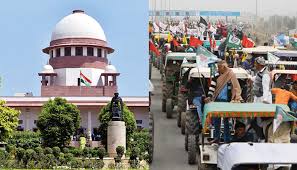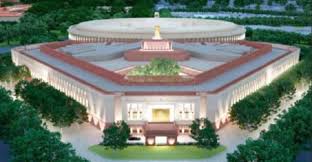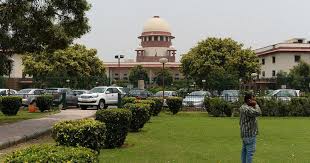Feature
SC notice on flaws in law admission test question paper

New Delhi: The Supreme Court on Friday issued notice to the central government, Patiala-based Rajiv Gandhi National University of Law and the Bar Council of India on a petition pointing to serious errors in the question paper and answer key of the Common Law Admission Test (CLAT) held every year for admission of law students in 16 national law colleges.
A bench of Justice T.S.Thakur and Justice V. Gopala Gowda issued notice on a petition by an academician S. Basheer pointing to serious flaws in the framing of the question paper and incorrect key.
The court agreed to examine the plea by Basheer, founder of NGO Increasing Diversity by Increasing Access to Legal Education (IDIA) aimed at training underprivileged students, after senior counsel K.K.Venugopal appearing for him told the court that both the question papers and its key suffered from serious discrepancies as “a large number of wrong answers treated by the answer key as correct answers”.
Venugopal said that the flawed question paper and answer keys coupled with negative marking marred the future of a number of aspirants appearing in CLAT.
Though there are 16 national law colleges across the country but notice was issued to Rajiv Gandhi National University of Law as it was its turn to set the question paper for the CLAT examination for academic year 2016-17.
Seeking setting up of an expert committee to review the manner in which questions are framed for the conduct of CLAT, Venugopal told the court that “innovative questions to go into the acumen of the students” appearing in CLAT are not there.
Advocating institutional reforms and urging for an independent professional body for the conduct of the CLAT, the court was told that the students from general category were being charged Rs.4,000 and from reserved category Rs.3,000 for appearing in the common test, resulting in huge earnings.
Out of this money collection as examination fee, one half goes to the university conducting the CLAT and the other half for the conduct of the examination.
Agreeing that the fee being charged from the students appearing in the CLAT could not be a source of enrichment for the institution conducting it, the court said “the perfect system” has deteriorated over the years.
Asking the petitioner and others to come forward with ideas and recommendations, the court said: “It is difficult to come up with a perfectly accurate system of examination.”
Basheer’s petition says that the ways CLAT was being conducted constituted “serious violation of the sacrosanct rights guaranteed under Constitution of India to various prospective law students, including the right to guard against arbitrary actions of the state (under article 14) and the right to education and other connected rights within the ambit of article 21 of the constitution”.
Entertainment
Meghalaya Reserves Legalized Gambling and Sports Betting for Tourists

The State Scores Extra High on Gaming-Friendly Industry Index
Meghalaya scored 92.85 out of 100 possible points in a Gaming Industry Index and proved to be India’s most gaming-friendly state following its recent profound legislation changes over the field allowing land-based and online gaming, including games of chance, under a licensing regime.
The index by the UK India Business Council (UKIBC) uses a scale of 0 to 100 to measure the level of legalisation on gambling and betting achieved by a state based on the scores over a set of seven different games – lottery, horse racing, betting on sports, poker, rummy, casino and fantasy sports
Starting from February last year, Meghalaya became the third state in India’s northeast to legalise gambling and betting after Sikkim and Nagaland. After consultations with the UKIBC, the state proceeded with the adoption of the Meghalaya Regulation of Gaming Act, 2021 and the nullification of the Meghalaya Prevention of Gambling Act, 1970. Subsequently in December, the Meghalaya Regulation of Gaming Rules, 2021 were notified and came into force.
All for the Tourists
The move to legalise and license various forms of offline and online betting and gambling in Meghalaya is aimed at boosting tourism and creating jobs, and altogether raising taxation revenues for the northeastern state. At the same time, the opportunities to bet and gamble legally will be reserved only for tourists and visitors.
“We came out with a Gaming Act and subsequently framed the Regulation of Gaming Rules, 2021. The government will accordingly issue licenses to operate games of skill and chance, both online and offline,” said James P. K. Sangma, Meghalaya State Law and Taxation Minister speaking in the capital city of Shillong. “But the legalized gambling and gaming will only be for tourists and not residents of Meghalaya,” he continued.
To be allowed to play, tourists and people visiting the state for work or business purposes will have to prove their non-resident status by presenting appropriate documents, in a process similar to a bank KYC (Know Your Customer) procedure.
Meghalaya Reaches Out to a Vast Market
With 140 millions of people in India estimated to bet regularly on sports, and a total of 370 million desi bettors around prominent sporting events, as per data from one of the latest reports by Esse N Videri, Meghalaya is set to reach out and take a piece of a vast market.
Estimates on the financial value of India’s sports betting market, combined across all types of offline channels and online sports and cricket predictions and betting platforms, speak about amounts between $130 and $150 billion (roughly between ₹9.7 and ₹11.5 lakh crore).
Andhra Pradesh, Telangana and Delhi are shown to deliver the highest number of bettors and Meghalaya can count on substantial tourists flow from their betting circles. The sports betting communities of Karnataka, Maharashtra, Uttar Pradesh and Haryana are also not to be underestimated.
Among the sports, cricket is most popular, registering 68 percent of the total bet count analyzed by Esse N Videri. Football takes second position with 11 percent of the bets, followed by betting on FIFA at 7 percent and on eCricket at 5 percent. The last position in the Top 5 of popular sports for betting in India is taken by tennis with 3 percent of the bet count.
Local Citizens will Still have Their Teer Betting
Meghalaya residents will still be permitted to participate in teer betting over arrow-shooting results. Teer is a traditional method of gambling, somewhat similar to a lottery draw, and held under the rules of the Meghalaya Regulation of the Game of Arrow Shooting and the Sale of Teer Tickets Act, 2018.
Teer includes bettors wagering on the number of arrows that reach the target which is placed about 50 meters away from a team of 20 archers positioned in a semicircle.
The archers shoot volleys of arrows at the target for ten minutes, and players place their bets choosing a number between 0 and 99 trying to guess the last two digits of the number of arrows that successfully pierce the target.
If, for example, the number of hits is 256, anyone who has bet on 56 wins an amount eight times bigger than their wager.





















